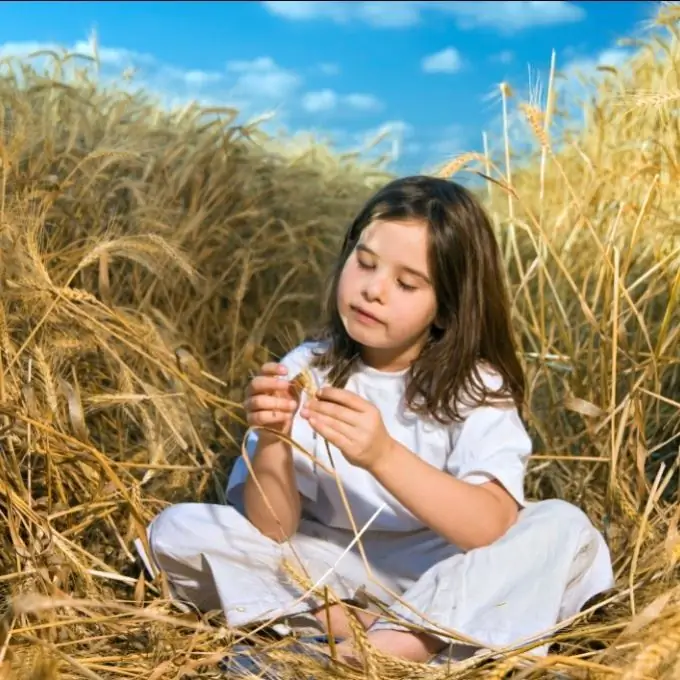- Author Caroline Forman forman@fiestaleisure.com.
- Public 2023-12-16 11:46.
- Last modified 2025-01-23 09:54.
Zazhinki is an ancient Slavic holiday of farmers. Celebrated at the end of July when the harvest begins. On this day, the peasants summed up the results of their many days of work. We were preparing for Zazhinki as for a big holiday.

It was believed that as you spend Zazhinki, you will harvest such a crop. Therefore, they tried to celebrate this holiday magnificently and cheerfully. Women carried out general cleaning in the house, men cleaned the yard, cleared space in the barns for a new harvest.
Then the peasants went into the field to see if the wheat was ripe. They went there either early in the morning, before the sun rose, or late at night. In the old days, it was a tradition to put the first harvest of harvested ears not in a sheaf, but separately, next to the food brought with you to the field. The next sheaf was healed by the oldest woman in the family. He was called "gaspodarok" and was considered a birthday. This sheaf was decorated with herbs, flowers, tied with beautiful ribbons, and then carried home, and placed next to the icons. It was believed that these grains are healing and can cure many diseases. Returning home after Zazhinok, the peasants covered the table with a white tablecloth and prepared a festive dinner. They also organized festivities.
Many modern grain growers also honor the Zazhinka holiday. Like many years ago, they perform all the required ceremonies in the field. On this day, farms host various festivals, exhibitions, fairs dedicated to the beginning of the harvest. Agricultural workers are invited to participate in contests for the most beautiful sheaf or for the most agile reaper. There are also culinary competitions - who will make the most delicious kvass and the original loaf. And guests of the festival are greeted with bread and salt, treated with various dishes. The holiday is accompanied by music, songs, dances, folk games.
After the noisy fun, workdays begin at the farmers. The very next day after Zazhinok, the harvesters will go out into the field, and harvesting will begin - one of the most crucial periods in the work of the peasants.


